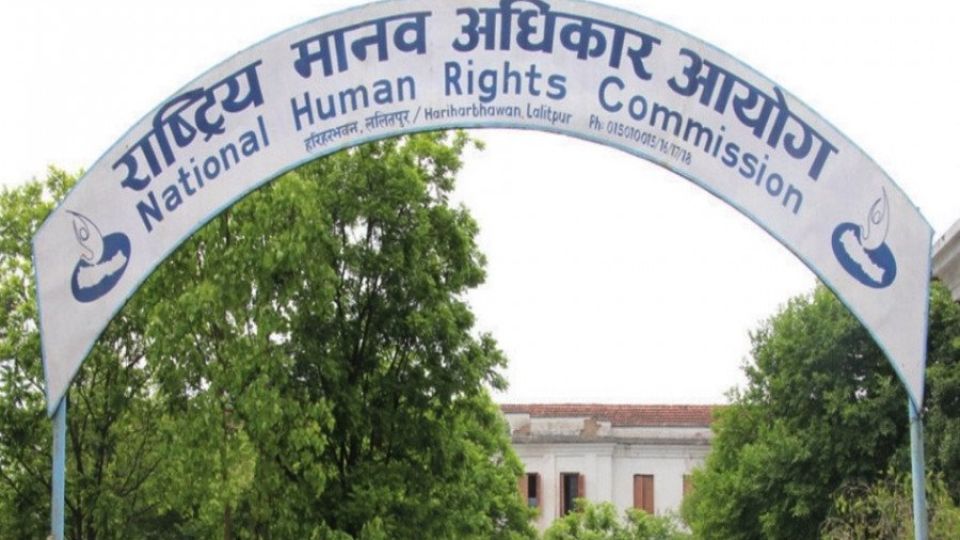February 1, 2024
KATHMANDU – With no government initiative to implement its recommendations, the National Human Rights Commission on Tuesday made public a list of 60 people including politicians, and government and security officials implicated in serious human rights violations in the previous fiscal year.
The list includes 32 sitting and former Nepal Police officials, 12 government officials, 10 former CPN (Maoist Centre) leaders, four officials from the Nepal Army, one each from the Armed Police Force and the National Investigation Department.
Shyam Babu Kafle, chief at the investigation department in the commission, said 66 people were implicated by the commission in the fiscal year 2022-23 after investigating 404 complaints filed with it on different dates. “We didn’t name six of the 66 as they have either submitted their clarifications before the commission or the state has taken action against them,” he told the Post.
Four among the 32 Nepal Police officials are former superintendents of police—Yogeshwar Romkhami, Ram Kumar Khanal, Narayan Kumar Acharya and Uma Prasad Chaturvedi. Likewise, former chief district officers Madhav Kumar Ojha, Shaligram Sharma Paudyal, Deep Kumar Pahadi, Saroj Kumar Guragain, Rama Acharya and Shiva Prasad Nepal are among those implicated by the commission.
Similarly, former Nepal Army majors Krishna Murari Neupane and Surat Rawal are also on the list. Chairman of Aam Janata Party and former CPN (Maoist Centre) leader Prabhu Sah and Maoist leader Shrawan Kumar Yadav too are mentioned.
Sah and Yadav, according to Kafle, were implicated in the Gaur massacre while most others were implicated in the Maoist insurgency-era cases of human rights violations. On March 21, 2007, as many as 27 individuals associated with the then CPN (Maoist) were brutally killed, with another 115 injured in what is known as Gaur massacre.
They were killed by cadres of the then Madhesi Janadhikar Forum Nepal-led by Upendra Yadav. Sah and his party leaders were implicated for clashing with Forum’s cadres which resulted in the deadly incident.
“This is the second time, since its establishment [in 2000], that the commission has published the list of implicated people,” Durga Pokharel, a human rights officer at the commission, told the Post.
For the first time, in October 2020, the commission had made public a list of 286 people including former top government and security officials implicated in serious human rights violations in over two decades of its establishment.
The list included former chief of Nepal Army, Pyar Jung Thapa, former home secretary Narayan Gopal Malego and former chief of Nepal Police Kuber Singh Rana. While Rana was implicated for his direct involvement in the enforced disappearance and the subsequent killing of five youths in Godar of Dhanusha in 2003 during the height of the Maoist insurgency, Thapa and Magelo were implicated in connection with excessive use of force by the Nepal Police in Rangeli of Morang during the second Madhesh movement in January 2016.
The commission had directed the government to book Rana for criminal offence, but he was instead promoted to the chief of Nepal Police by the Baburam Bhattarai government in 2012. The constitutional human rights body had also asked the government to bring Thapa to justice as he was leading the national defence force when 49 people were forcibly disappeared from the Army’s Bhairabnath Battalion in Maharajgunj between April 2003 and February 2005, but that recommendation was never implemented.
Article 249 (h) of the Constitution of Nepal authorises the commission to bring the names of the human rights violators in the public domain for record. Clause 7 of the National Human Rights Commission Act, 2012, too allows the commission to make the names public and keep the record of human rights violators and of those officials, persons or agencies that don’t implement its recommendations.
Despite the legal authority, it took more than two decades for the constitutional human rights watchdog to make the compiled list of perpetrators public. The officials at the commission say it was done to build pressure on relevant authorities to act.
Successive governments have largely been indifferent to implementing its recommendations. Only 15 percent of the recommendations are fully implemented, according to the commission.
Over the years, the commission has implicated 358 political party leaders, government and security officials in serious human rights violations. Similarly, it has recommended monetary compensation worth Rs281.3 million. However, the government has paid compensation worth around Rs70 million only. “Over the years, there has been no significant progress in implementing the recommendations,” reads a statement issued by the commission on Tuesday.
In order to make the government responsible on such issues, the Supreme Court in September asked the Prime Minister’s Office to present the list of those convicted by the commission to the Attorney General’s Office for prosecution. Those involved in cases of human rights violations must be barred from appointment, promotion or any career development in any constitutional or public post, the court order has said.
It also directed the government to amend the existing Act of the commission incorporating a clause that makes acting on the rights watchdog’s recommendations binding.


